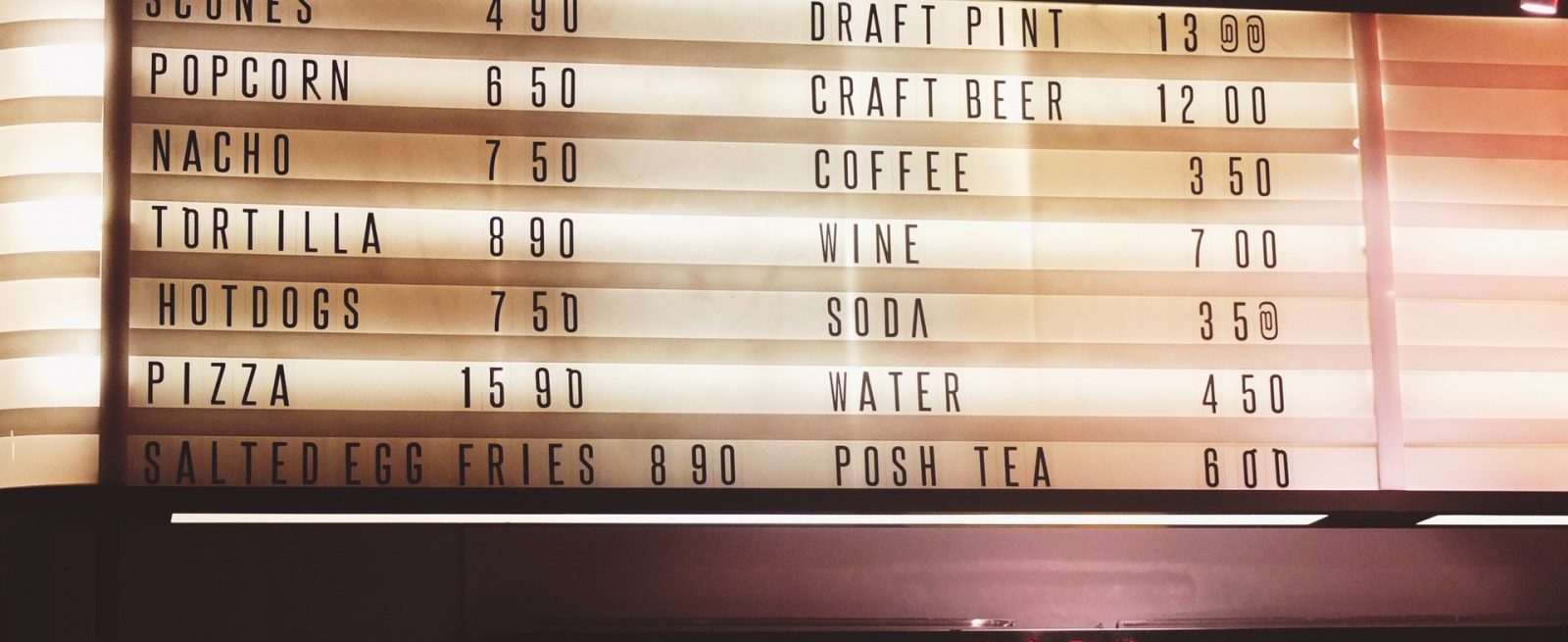The Impact of New Jersey Menu Engineering Cases
4 Min Read By Pooja S. Nair
New Jersey restaurant customers brought two different class action lawsuits against OSI Restaurant Group (parent of Carrabba’s Italian Grill) and TGI Fridays alleging that the chain restaurants overcharged customers and did not properly identify drink prices on their menus. On October 4, 2017, the New Jersey Supreme Court issued a ruling allowing the class action case against Carrabba’s to go forward, but effectively killed the case against TGIF.
Customers at both restaurants claimed that they were charged two different prices for the same beverage in 2008. The TGIF customer stated that she was charged $2 for a beer at the bar and later charged $3.59 for the same beer when she moved to the table. The Carrabba’s customer claimed that he ordered two beers during his meal and discovered when he received his check that the first beer cost $3.25, and the second cost $4.25. When he asked about the price difference, he was told by the server that the computer changed prices at a certain time.
The plaintiffs’ claims were based on two different New Jersey consumer protection laws: the Consumer Fraud Act (CFA) and the Truth in Consumer Contract, Warranty and Notice Act (TCCWNA).
The CFA is designed to protect customers from fraudulent business practices and has a private attorney general provision that allows plaintiffs to enforce it. Establishing a CFA claim requires the three elements:
(1) an unlawful conduct by defendant;
(2) an ascertainable loss by plaintiff; and
(3) a causal relationship between the unlawful conduct and the ascertainable loss.
The TCCWNA is intended to protect customers from false statements in information provided by businesses. Making a claim under the TCCWNA requires that the plaintiff prove that he or she was provided with or shown, a warranty, contract, sign, or notice that includes language that violates New Jersey or federal law in some respect. In this case, the TGIF and Carrabba’s plaintiffs argued that the restaurant menus without drink prices were false statements.
The New Jersey cases highlight restaurants’ potential exposure if the same customer is charged two different prices for items.
In the TGIF case, the plaintiff argued that TGIF overcharged its New Jersey customers (the class members) more than the “fair” or “reasonable” prices that it would have charged if it had displayed its prices on the menu. They relied on internal marketing research reports that TGIF turned over in the litigation showing that customers informed of beverage prices spent an average of $1.72 less per visit than customers who did not see these prices. Based on this research, the plaintiffs argued that TGIF was deliberately concealing prices on the menu and inflating prices for all customers in its 34 New Jersey restaurants. The plaintiff argued that all customers who had ordered drinks at TGIF had a collective loss and should be able to proceed with a class action.
A New Jersey trial court agreed to certify the class of TGIF customers, but an Appellate Division rejected the certification in 2016. The case then moved onto the New Jersey Supreme Court. The TGIF plaintiff failed to convince the New Jersey Supreme Court that the potential class members had enough in common to form a class. The court was not convinced that there were common questions of law or fact that predominated over any questions affecting only individual members. As a result, the TGIF class was decertified. This means that although the individual plaintiff can continue to go forward with her case, she could only recover her personal loss of $1.72, effectively killing the case against TGIF.
In the Carrabba’s case, the plaintiff focused on the specific practice of Carrabba’s “increasing the price charged to a customer for the same brand, type, and volume of beverage in the course of the customer’s visit to the restaurant, without notifying the customer of the change.” All customers who had been charged in this way were a proposed class. This class was certified by a trial court, and the certification was affirmed by an appellate court.
Because the cases against Carrabba’s and TGIF dealt with similar issues, the New Jersey Supreme Court agreed to consolidate them and review both of them to provide some clarity on consumer protection as it related to menu pricing.
The New Jersey Supreme Court found the Carrabba’s claims more convincing than the claims against TGIF. Because the Carrabba’s plaintiffs had argued about a specific pricing practice, it found that the class action could proceed under the CFA. However, it rejected the TCCWNA claims.
One judge, Justice Barry T. Albin strongly dissented with the New Jersey Supreme Court decision, stating: “[t]he majority’s decision is a major blow to consumer rights advanced in both the CFA and TCCWNA. The decision ensures that thousands of patrons victimized by TGIF’s violation of our consumer-fraud laws have no meaningful remedy.”
Key Takeaway
The New Jersey cases highlight restaurants’ potential exposure if the same customer is charged two different prices for items. Although the price difference charged was less than $2 in both cases, the potential loss across all customers of either of these restaurants would be significant as an aggregate. The fact that the lawsuit against Carrabba’s is going forward means that failing to list prices is a viable basis for a class-action lawsuit under the two New Jersey laws, and potentially under similar consumer protection laws in other states.
A best practice is for restaurants to be transparent with pricing, and to clearly list promotional prices and eligible times for happy hours and similar special pricing events.


